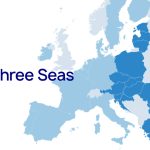The European Parliament elections are institutionally very important for the EU. It is an important organization for the EU both because it is the place where the EU’s regulatory decisions and laws are voted and because it determines the executive body such as the EU Commission. However, the expectations of European nations from this organization are generally not very high. This is reflected in the voter turnout, with the highest turnout rate being around 50%.
What we often see in EP elections is that they are seen as a warning mechanism for politics in member states. In other words, nations can turn to different parties and groups in EP elections as a balancing and sometimes challenging factor for their national parliaments and governments. We see this especially in France in these elections. French President Emmanuel Macron’s snap election move should also be evaluated in this way.
Another issue that needs to be considered in this year’s elections is the fact that it was the first election held after the UK’s Brexit. After Brexit, which was one of the heaviest blows to the EU project, doubts about the Union’s capacity to continue have increased. This has increased the importance of the elections.
Overall, there is no sharp transformation in the composition of the EP, no significant turnover among parliamentarians, except for the liberals. But the fact that the far right has found a place for itself in the two-and-a-half-party majority structure signals a transformation in some policies for the EU.
The Rise of Far Right and Populist Parties in Europe
First of all, it should be emphasized that the far-right parties in Europe do not stand on the same page and do not see things from the same perspective. There are also issues on which they think quite differently. Although they differ in fundamental areas such as the economy, foreign policy and social position, what they are united on is the demand for change in the existing system and its functioning…
…









